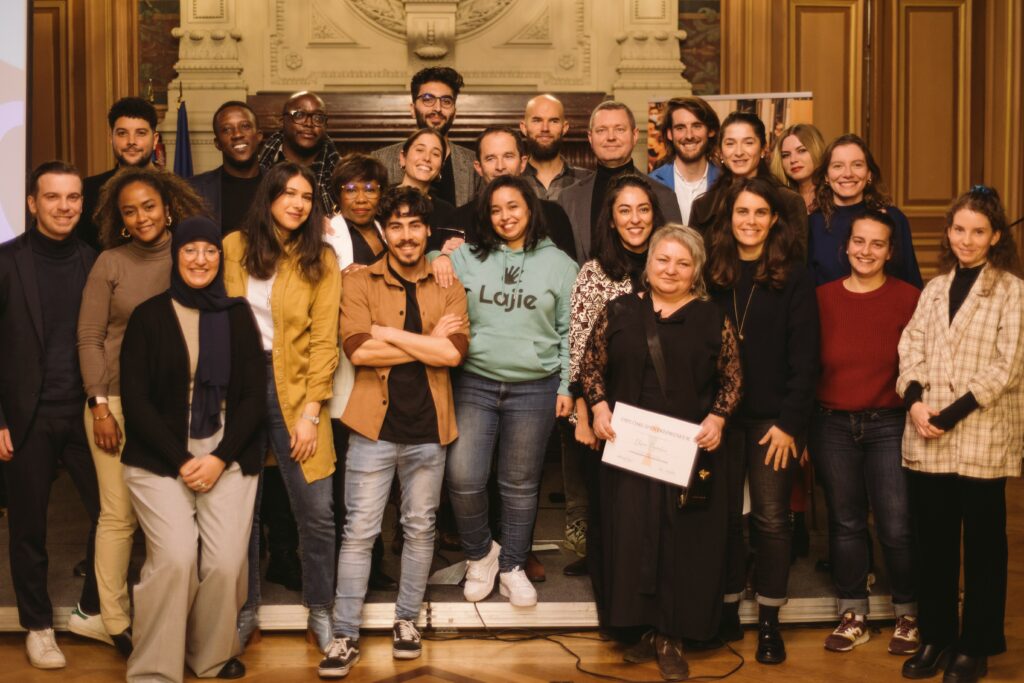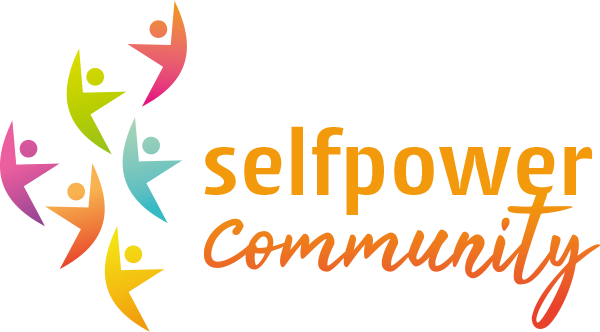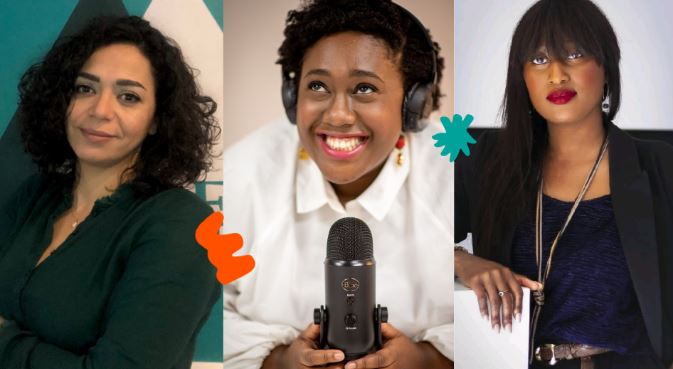75- 02/05/2024 This month, Selfpower Community invites you to discover the empowering dynamic of Singa, a participatory NGO that helps exiled and refugee people reach their full professional potential. To discuss the achievements and strategies for promoting change initiated by this movement, we spoke to Isabelle and Jessica, educational engineers at Singa Global.”
Singa was founded in 2012 by Nathanaël Molle and Guillaume Capelle, two volunteer students eager to teach French to newcomers. They quickly realized that participants made better progress during passionate discussions and that kindness, horizontal relationships, and spontaneity were the best educational supports. Thus, they created mentorship programs. Today, the Singa France community counts over 50,000 members. It has facilitated the creation of more than 320 startups, half of which employ at least one person!
How Singa turned vulnerable people into entrepreneurs?
Precisely by not considering them as vulnerable, but rather by changing the perspective and putting them in situations where they can act instead of categorizing them as fragile individuals in need. The SINGA method draws its inspiration from the peer-to-peer network model, an equal exchange model. At SINGA, no one is helping or being helped; everyone is an agent of change working together to share and learn from one another.
We prioritize informal exchanges that foster the discovery of students’ personalities and talents. More educated and more resilient than the average young adult, they are not valued in immigrant reception structures. The volonteers had the idea to leverage the knowledge and skills of their interlocutors by helping them to establish themselves in their host country. They envisioned a process that develops their abilities to the point of making them fully autonomous, and why not entrepreneurs or even employers!
The SINGA method focuses on giving a voice, influence, and visibility to individuals affected by migration. Our approach to inclusion also relies on the active contribution of newcomers to our programs. We do not rely on initiatives devised without the experience and perspective of those who have lived through the challenges of migration. We do not aim to impact audiences without seeking their opinions, reactions, or evaluations.

How can we help newcomers regain control of their lives and destinies in an environment where they are unfamiliar with the codes?
We see SINGA’s role somewhat akin to that of a social neobank, as it provides newly arrived individuals with the social capital of its members and its premises. To unleash talents, SINGA mobilizes a large community, a network of helpers representing cultural diversity. Indeed, we believe that the simplest and most decisive act to connect with a newcomer is to share with them our social capital. This social capital that individuals have left behind and that is so difficult to rebuild in a country where they initially do not master the cultures, codes, and language.
Connection is the key. Encounters between locals and newcomers facilitate access to opportunities (employment, training, or housing); most importantly, they help build confidence. Newcomers bring a precious gift when they join our societies: their knowledge and life experiences. That is why SINGA develops a multitude of programs (through language practice, meetings with locals, acquiring socio-cultural landmarks, embracing culture, and identifying resource persons). These workshops are designed to create connections that help individuals find their place, regain self-confidence, navigate their environment, feel part of a group, and contribute to a societal project. Such support prevents individuals from losing ground in a spiral of alienation, feelings of incapacity, dependency, and loneliness.
What prompted Singa to evolve? To offer new services?
During their internships in Morocco and Australia working with migrants, the two student co-founders realized that many newcomers were eager to start businesses. However, host countries mostly aim to prevent their arrival, and once they are there, to protect themselves from them or focus solely on their needs, without recognizing and valuing their skills. This is a mistake because enabling them to start a business is a positive long-term projection, as most refugees do not return. To address this gap, the Buddy program deployed two dimensions, one focusing on interests and one on entrepreneurship.
To find a name for their new organisation, the co-founders drew inspiration from a term related to the culture of newcomers: SINGA comes from the word “tie” in Lingala, but in Bambara, it means “loan” or “borrowing.” There was indeed a link to microfinance because the initiators had thought of creating a crowdlending platform that never materialized.
The need for housing was evident, and a project emerged from a hackathon organized by SINGA: the “As at hom” (now “I welcome”) citizen hosting project was created. In 2015, the tragedy of little Aylan washed up on a beach sparked global outrage and an awareness in Europe. The accommodation project gained momentum, SINGA Commons was created, and a license was implemented.
SINGA creates opportunities for encounters and collaboration by offering both entrepreneurial support (social capital for professional life) and shared activities, as well as civic accommodation (social capital for personal life).
How are the working groups organized?
Each program has its own specific sequence and priorities:
- Benevolence: a warm, unconditional welcome – valuing the process – a bond of trust,
- Listening and empathy, on an equal footing: ask what the promoters want, not tell them what to do,
- Inclusive flexibility with regard to project owners: format, language, specific needs in relation to peripheral obstacles, etc. – Creation of links with other players in the ecosystem and other entrepreneurs, in particular aluminis,
- Collective intelligence workshops: project leaders identify topics for co-development workshops with their peers,
- A broad vision of entrepreneurship: not just start-ups or companies, but also associations, artistic and cultural projects, freelancers, etc.
- Help in decoding/translating the business creation ecosystem,
- Global support, beyond the entrepreneurial idea,
Aim to improve mental well-being and support ideation in the same way as the incubatee so that the latter feels less alone or isolated, benefit from renewed self-confidence and feel a greater capacity for action
Former project leaders are invited to join the association’s operations (e.g. Rooh Savar, ex-incubate of the Welcome Account neobank project for newcomers, is President of SINGA Global, Camila Rios Armas, ex-incubate of the UNIR association, is President of SINGA Paris).
What features helped to forge links within the groups? What collaborative features did you create or co-create with participants?
We couldn’t think of a better way for locals and newcomers to connect on a massive scale than by sharing common passions and interests, “doing what we love together”, partying, sport, music and getting together for events,
We also support projects that join this approach via 9 incubators in Europe (Kabubu, the association that aims to promote the social and professional inclusion of exiled people through the power of sport; MeetMyMama, reveals the culinary talents of Mamas from all over the world; Frello, supports all types of structure providing French language training; Konexio, offers free training in computer skills and tech professions; Caracol, supports temporary occupation projects for solidarity housing; RefugeeFoodFestival, facilitates the professional integration of refugees in the catering industry; Welcome Account, the world’s first bank to accelerate the financial inclusion of new arrivals…
How do you assess the effectiveness of your incubators?
The best evaluation is feedback and discussions with participants in the various programs. But in addition, an evaluation report in September 2023 by Improve measured the impact of SINGA’s entrepreneurship coaching. Here are a few figures :
- 71% of entrepreneurs have (re)gained confidence in their professional abilities,
- 75% of people who had experienced a professional downgrading compared to their country of origin said they had regained a stronger social position.
What strong values do our teams share?
Horizontality: we build horizontal relationships, doing “with” and not “for”
Benevolence, openness and respect: we build flexible programs to adapt to each individual’s needs.
All sectors and profiles are welcome: it’s from this diversity that the SINGA community draws its strength.
“For SINGA employees, there is a world where seeking asylum is not an additional suffering, where skills are recognized, and cultural difference is welcomed as an opportunity to learn.” (Guillaume Capelle, co-founder of SINGA).
Do you see yourself as a vehicle for social transformation?
SINGA is a driver of societal transformation in that it applies a collaborative approach to immigration. It encourages the recognition of entrepreneurial capacities among newcomers. In this perspective, it aims to enrich and leverage the skills and talents of individuals often reduced to a state of dependency due to their imposed status as aid recipients, or even ostracized as undesirable and threatening. SINGA breaks away from these stereotypes
The NGO develops a concept of horizontal volunteering and implements strategies that embody their solidarity with newcomers. The societal dimension is also reflected in its partnerships with:
- Public actors (BPI France, French Tech Tremplin, CitésLab, OFII, City of Paris)
- Associative and entrepreneurial ecosystem (Adie, Diversidays, makesense, Emmaüs Solidarités, …)
- Private companies, foundations, and funds (Generali, Fondation Entreprendre, KPM, Estimeo, Fonds Sens, Fondation VISA, …)
- Resource centers (such as the Maison des Réfugiés in partnership with Emmaüs Solidarité, La Gaîté Lyrique directed by SINGA in a consortium with Actes Sud, Arty Farty, ARTE France, and makesense, Les Amarres, Les Canaux, …)
SINGA also shares its methodologies and actively participates in numerous collaborations involving non-governmental, economic, and public actors, thereby amplifying its impact in France and Europe.
Furthermore, the societal dimension involves the affirmation of unifying values around a more inclusive conception of the world of work. With Utopies, SINGA promotes the Charter of Inclusion signed by over 60 large companies, SMEs, networks, and associations. It aims to change companies’ perspectives on the “employability” of refugees and exiles.
SINGA is now recognized by official organisations as a partner. The NGO participates in the work and conferences of the Refugee Entrepreneurship Network and is involved in the Work With Refugee collective.
Following the outbreak of war in Ukraine, “J’accueille” shared its expertise with more than 10 associations in neighboring countries.
Do you have shed new light on the issue of immigration??
We know that migration is and will remain a structural reality in an increasingly globalized and interconnected world. These movements are exacerbated by global demographics, economic inequalities, international armed conflicts, and climate change disruptions. No wall, no police force, no legislation can halt the scale of migration. At SINGA, we are convinced that migration, far from dividing, is a driver of prosperity, creativity, and contributes to social cohesion. This is confirmed by most economists, including diverse figures such as Jean Tirole, Patrick Artus, and the Keynesians of the OFCE.
Immigration is a vital asset for financing a sustainable social model, balancing retirement and healthcare systems, and maintaining prosperity. The benefits of migration are countless. A recent survey by CNRS demonstrates that the skills of immigrant individuals and diversity within teams foster innovation across all sectors. Migration also provides unique opportunities to learn how to interact with individuals from diverse backgrounds, thereby strengthening adaptability in a constantly evolving society—an important step toward mutual understanding and harmonious coexistence.
We have always sought to reach the tipping point in society. It happens when enough people have experienced a different kind of inclusion, have become aware of the absurdity of current rules and behaviors. For SINGA, inclusion is the keystone of changing perspectives. That’s why SINGA is redoubling its efforts to calm the debate, educate citizens, and transform perceptions about migration. SINGA shines a light on portraits and narratives of those affected, their positive contributions to society, and raises awareness about the realities of migration.
SINGA is committed to transforming the lexicon and images associated with migration, embodying inclusion rather than exclusion.
*Entrepreneurial support programs include regular one-to-one meetings with a SINGA support manager, who provides follow-up and one-to-one meetings with mentors/experts if required, depending on the sector, group workshops on entrepreneurial topics during the day or evening, and events or meetings with other entrepreneurs, alumni, partners, etc. After the program has ended, an alumni can always contact the teams and/or the community.
Editorial : Singa and Marie-Georges Fayn

Main cause: creating a more inclusive society by bringing together locals and newcomers (refugees, asylum seekers…) around social, professional and entrepreneurial projects.
Founded: 2012
Address: Kiwanda (50, rue de Montreuil, 75011, Paris, France)
Special features: focuses on the development of talents, not on the need for assistance, and on a model of peer-to-peer exchange; sees immigration as a driving force for prosperity, creativity and social cohesion; in counterpoint to stereotypes that denounce immigration as a threat.
Missions: offers a constructive and dignified response to the issue of integration
Number of members: an international community of 50,000 members
Number of projects supported: 500 in Paris
Number of start-ups supported between 2018 and 2023: 317
Presence: 10 countries and 20 cities
[1] Vidéo de David Robert https://impactstories.fr/video/43/la-cooperation
[2]https://Singafrance.com/histoires/Singa-et-utopies-creent-une-charte-en-faveur-de-linclusion-professionelle-des-nouveaux-arrivants/





En postant un commentaire sur www.selfpower-community, vous acceptez les règles de l’espace réaction et reconnaissez à www.selfpower-community la capacité de ne pas publier certaines contributions sans avoir à motiver cette décision.
prendre connaissance des règles